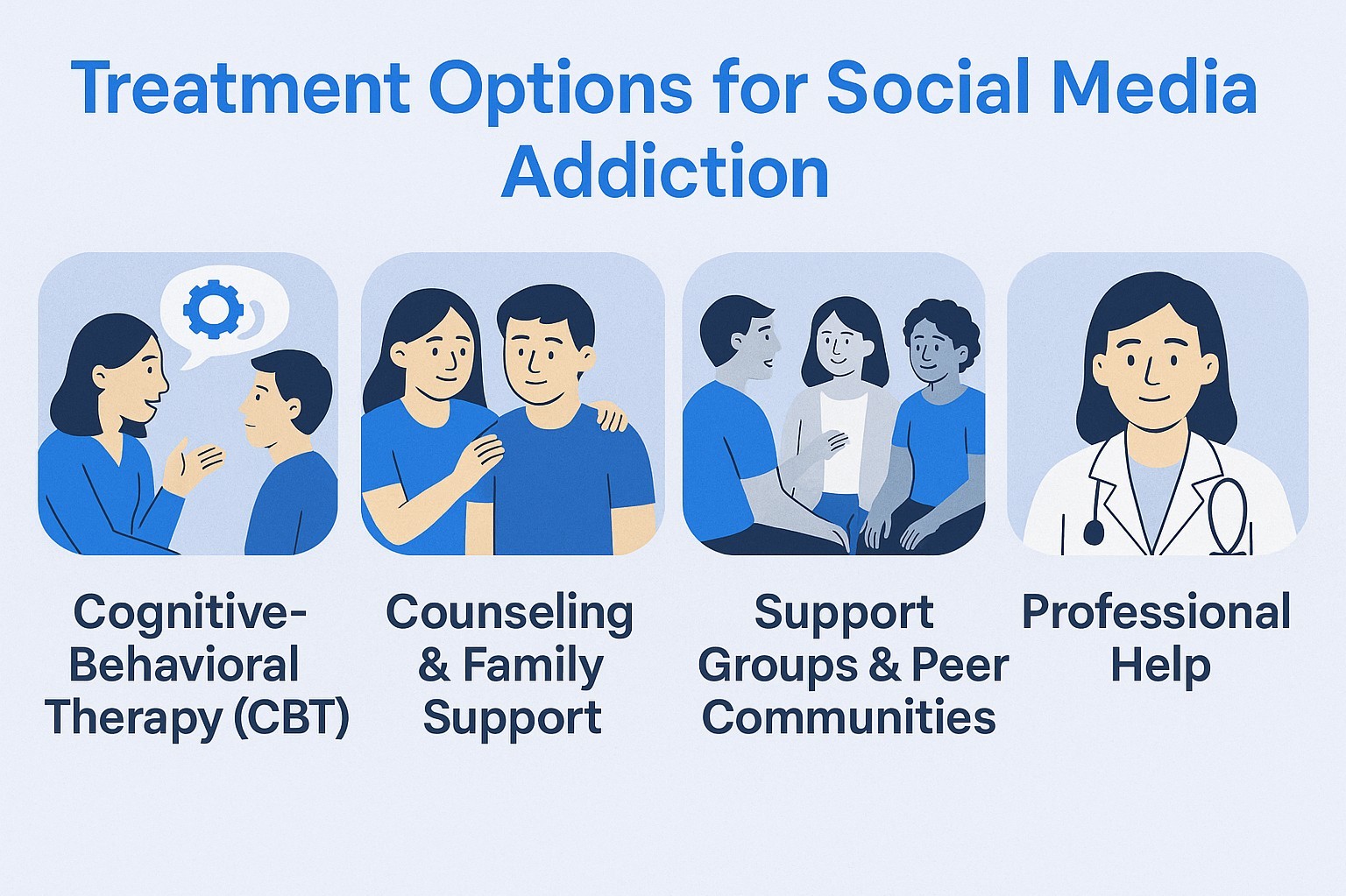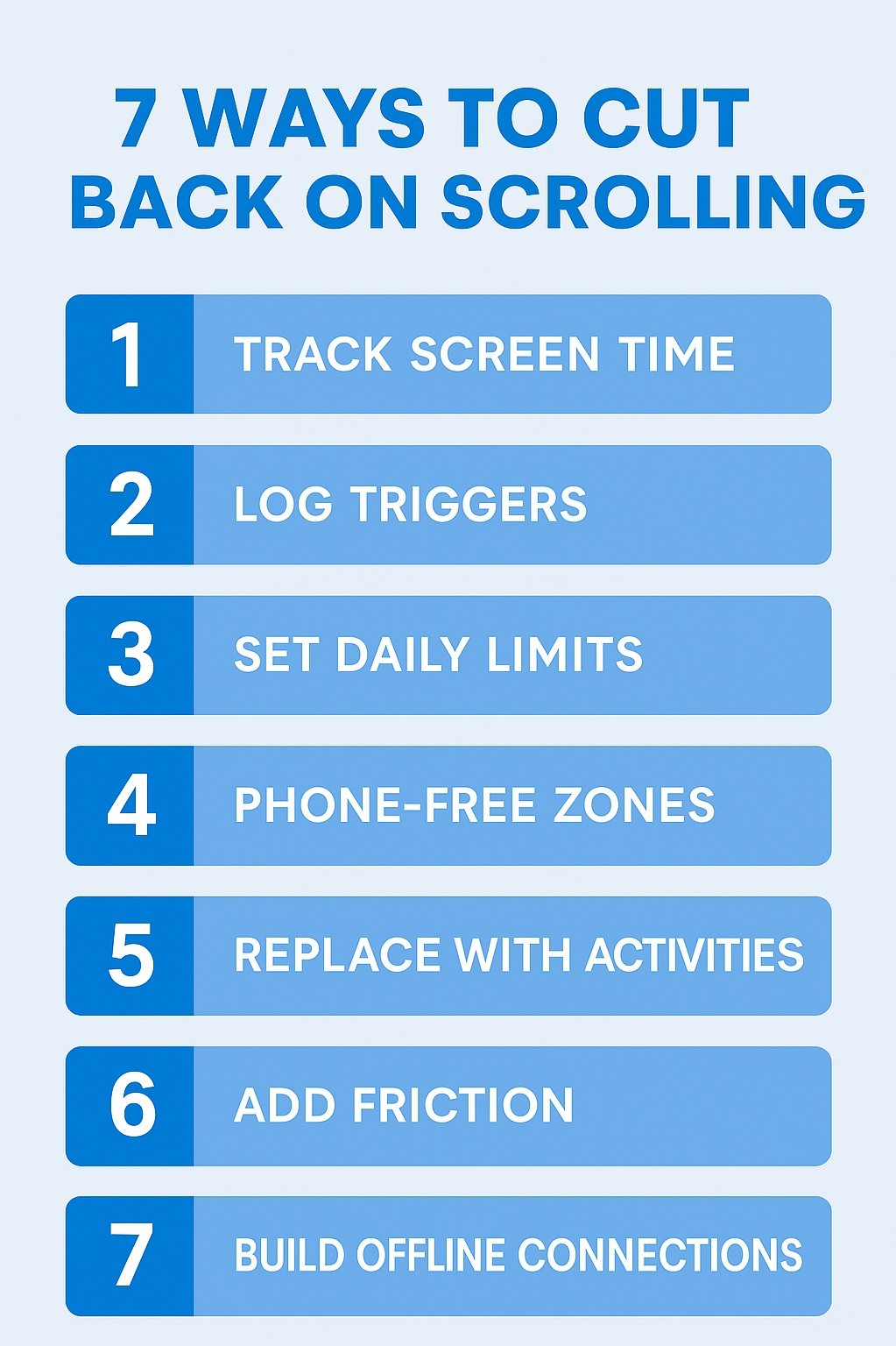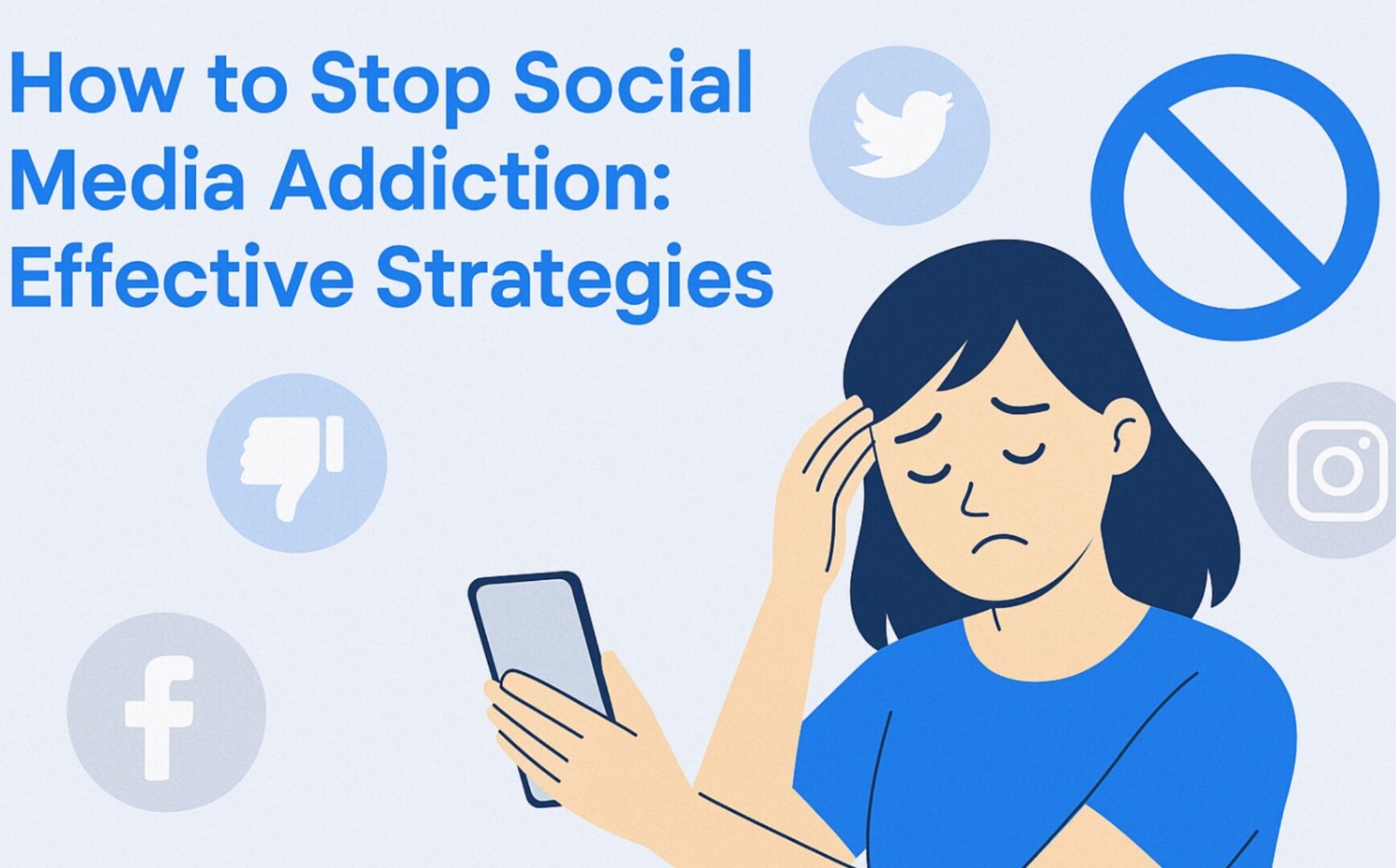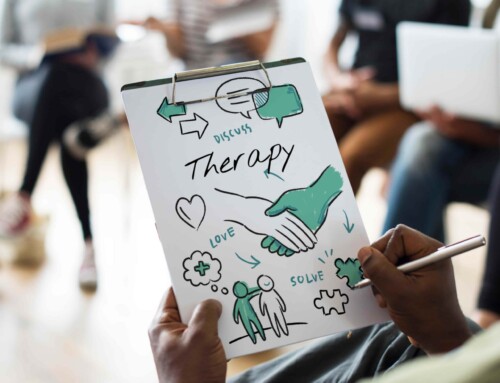How To Stop Social Media Addiction: Effective Strategies
TL;DR
|
|---|
Ever opened your phone to “just check one thing” and suddenly realized an hour had disappeared? Spending an extra hour online occasionally is part of modern life. But, if that extra hour turns into a daily drain, it could be a sign of social media addiction.
For teenagers, this is especially common. In fact a study by Science Direct shows that the average teen now spends more than 3 hours and 49 minutes on their smartphone every single day.
That much screen time makes it easy to slip into habits that affect mood, focus, and relationships without even realizing it.
At Total Life Counseling, we hear these struggles every day from clients who feel caught in the cycle of excessive social media usage. The encouraging part is that change doesn’t have to mean quitting completely. It’s about learning how to stop social media addiction by regaining control and building healthier habits.
In this blog, we’ll explore how to recognize the signs of social media addiction, why it’s so tough to step away, and practical strategies you can start using right now to create more balance in your life.
Why Is Social Media So Hard To Put Down?
Have you ever wondered why it feels so hard to stop scrolling, even when you know it’s time to put the phone down? The answer lies in how social network sites interact with your brain’s reward system.
Every like, comment, or notification in the social networking sites triggers the release of dopamine, a feel-good chemical linked to pleasure and reward.
Over time, this creates a loop where your brain craves the next “hit” of digital validation. That is what makes social media addictive. It trains you to keep checking almost automatically.
Here’s how platforms keep you hooked:
- Instant gratification: A like or message provides quick reward pathways with minimal effort.
- Endless scroll: With no natural stopping point, there’s always “just one more post.”
- Unpredictable notifications: The surprise element makes checking your phone irresistible.
- Social validation: Comments and shares make you feel seen and valued, encouraging repeat behavior.
As per Tx Mental Health Advocates, neuroscientists have even compared this process to “a syringe of dopamine being injected straight into the system.” In other words, these small but frequent rewards are powerful enough to reshape habits and make social media feel nearly impossible to resist.
If you feel stuck in this cycle, talking to a professional can help you break free. Book a session with our Counselors today.
What Symptoms Reveal Social Media Addiction in Daily Life?
It’s normal to enjoy scrolling through your feeds, but when social media starts stealing the amount of time, focus, and energy from the rest of your life, it may be more than just a habit. Look out for these red flags:
- Time disappearing fast: You pick up your phone for a minute, and suddenly an hour is gone.
- Can’t cut back: Promises to “use it less” never seem to stick.
- Mood shifts: Irritability, restlessness, or even increased levels of anxiety when you can’t check your apps.
- Responsibilities slipping: Missed deadlines, undone chores, or poor grades tied to too much scrolling.
- Sleep struggles: Staying up late or waking in the night just to check notifications.
- Comparison trap: Constantly measuring your life against others online, leading to lower self-esteem and a persistent feelings of inadequacy.
- Pulling away offline: Less time with friends, family, or hobbies because scrolling takes priority.
These signs don’t automatically mean you’re addicted, but when several show up consistently and start affecting your health, work, or relationships, it’s time to pay attention.
If several of these signs show up consistently and start affecting daily life, it’s a clear signal to pay attention. To see the real-world impact of excessive smartphone and social media use, check out this insightful expert interview:
What Are the Treatment Options For Social Media Addiction?

Now you might ask, Are there treatments or professional help available for social media addiction? The answer is Yes.
Recovery isn’t about quitting social media completely. It’s about learning healthier habits and using the right kind of support.
Cognitive-Behavioral Therapy (CBT) helps you spot the triggers behind your scrolling, challenge negative thoughts, and replace them with coping tools like mindfulness or exercise. It also addresses issues like anxiety and depression that often fuel overuse.
Counseling gives you a safe space to unpack stress, boredom, or loneliness that drive the habit. Family therapy strengthens communication and sets clear boundaries at home.
Support groups and peer communities make the process less isolating. Sharing experiences, building accountability, and practicing healthy social interaction with others provide motivation and practical ideas.
Reaching out for professional help can be the turning point. With the right guidance, you shift from being controlled by social media to managing it on your own terms.
For a structured approach with expert-backed strategies, explore this masterclass on managing social media addiction.
Want To Break Free From Endless Scrolling? Here Are 7 Proven Strategies

So you might be thinking, How to quit social media addiction on you own? Well, breaking free from social media addiction is possible with the right approach.
Here are some practical steps you can start using today:
1. Track Your Screen Time
Most smartphones now come with built-in screen time trackers that show how many hours you spend on different apps. For young people especially, seeing the numbers makes it harder to ignore how much time is slipping away, and that awareness is often the first push to start setting limits.
2. Log Your Triggers
It’s not just about how long you scroll but also why. Keeping a simple log of when and why you use social media helps you identify emotional triggers like boredom, stress, or loneliness. Once you recognize these patterns, you can prepare healthier responses.
3. Set Daily Limits
App timers and lockout tools give you gentle nudges when your usage goes too far. By capping your time, you create a boundary that helps break the cycle of endless scrolling. Over time, you’ll train yourself to use social media more intentionally.
4. Create Phone-Free Zones
Boundaries work best when they’re both digital and physical. Try making certain times or places completely phone-free, such as mealtimes, mornings, or your bedroom at night. These small changes can improve sleep, focus, and your ability to stay present.
5. Replace Scrolling with Activities
If you simply cut out scrolling without replacing it, you’ll likely slip back into old habits. Fill that time with something rewarding like reading, exercise, mindfulness, or exploring a hobby. These alternatives not only keep you busy but also provide a deeper sense of fulfillment.
6. Add Friction to Apps
Social media thrives on instant access. By turning off notifications, logging out after use, or moving apps to a less convenient spot on your phone, you add a layer of friction. This extra step makes mindless tapping less automatic and gives you a chance to pause.
7. Build Offline Connections
Much of the pull of social media comes from the need for connection. Scheduling regular time with friends, family, or community groups can meet that same need in healthier ways. The more real world connections you nurture, the less dependent you’ll feel on online validation.
Building healthy offline habits also boosts self-worth. Check out these self-esteem activities for teens for more ideas that encourage confidence and real life connection.
How Can Total Life Counseling Help You Break Free From Social Media?
Making changes to your digital habits can feel overwhelming, and willpower alone is not always enough. The good news is you do not have to do it alone. At Total Life Counseling, we guide clients who want to know how to get rid of social media addiction in practical, sustainable ways.
Our counselors know how constant scrolling affects sleep, focus, and relationships, and we use proven therapies like Cognitive-Behavioral Therapy (CBT) along with simple, practical strategies you can apply every day.
How we can help:
- One-on-one counseling to manage stress, anxiety, or habits linked to social media use
- Family therapy to improve communication and set healthy boundaries at home
- Practical tools and step-by-step strategies for building long-term balance
- A supportive environment where you feel heard and encouraged
If social media feels like it is taking more than it gives, reaching out for support can be the first step toward real change.
Total Life Counseling is here to walk with you as you build healthier, happier habits. Contact Us Now!
Final Thoughts
Social media itself isn’t the problem, it’s how we use it. Each time you set a boundary or choose a healthier habit, you reclaim a little more of your time, focus, and peace of mind. Change doesn’t happen overnight, but small, consistent steps can reshape your relationship with technology and open space for what truly matters.
Frequently Asked Questions
Is social media addiction real?
Yes. While not formally listed as a clinical disorder, excessive social media use shows many features of behavioral addiction, including cravings, loss of control, withdrawal-like symptoms, and negative impacts on sleep, mood, and relationships.
What are the first steps I should take if I want to reduce my social media use?
Start by tracking your daily screen time, turning off non-essential notifications, and setting small, realistic limits. Creating phone-free zones, like during meals or before bed, makes it easier to build healthier habits gradually.
What are some simple strategies to reduce my screen time?
Simple strategies include turning off non-essential notifications, setting daily time limits using social media apps on your smartphones, and creating “phone-free” zones or times, like during meals. A planned digital detox, even a short one, can help reset your habits.
Can time management apps help control the use of social media?
Yes, time management apps are very effective. They track your usage across different social media platforms, provide data on your screen time, and help you enforce daily limits, making it easier to control excessive use of social media and stay disciplined.
When should I seek professional help for social media addiction?
You should seek professional help if problematic social media use severely impacts your daily life and mental health issues arise, and self-help strategies fail. A therapist can offer treatments like cognitive behavioral therapy (CBT) to address underlying thought patterns.
How is social media addictive?
Social media is addictive because it taps into the brain’s reward system. Every like, comment, or notification releases dopamine, creating a cycle of instant gratification that makes users crave more, often leading to excessive use.
How to combat social media addiction as a young adult?
Young adults can combat social media addiction by setting screen time limits, creating phone-free zones, and replacing scrolling with hobbies, exercise, or social interaction. Counseling and support groups also help build healthier habits and reduce dependency.
How to overcome social media addiction for kids?
Kids can overcome social media addiction with parental guidance, clear screen time rules, and engaging offline activities. Encouraging hobbies, outdoor play, and family interaction helps reduce reliance on screens while promoting healthier routines.
Can you give an idea on how to break social media addiction?
Breaking social media addiction starts with awareness. Track usage, set daily limits, and replace scrolling with meaningful alternatives like reading, exercise, or social interaction. Counseling or support groups can also provide structure and accountability.
Filed in: Jim West, Video and Social Media Addiction
Share This Story, Choose Your Platform!
Total Life Counseling Center consists of Licensed Counselors, masters level therapists, Español counselors, Licensed Mental Health Counselors, business coaches, and image enhancement coaches who provide counseling for emotional, mental, physical and spiritual care including marriage, individual, family, substance abuse and more. TLC’s family, trauma and marriage experts have been interviewed on National and Local TV/Radio over 200 times for their expert advice on Fox News, OWN, WETV, ABC’s Medical Minute and more. Our skilled counselors are relational, approachable and specialists providing therapy services in the Central Florida area including: Orlando, Winter Park, MetroWest, Windermere, Dr. Phillips, East Orlando, Lake Mary, and Clermont, Boca Raton Florida, and Dallas, TX.






